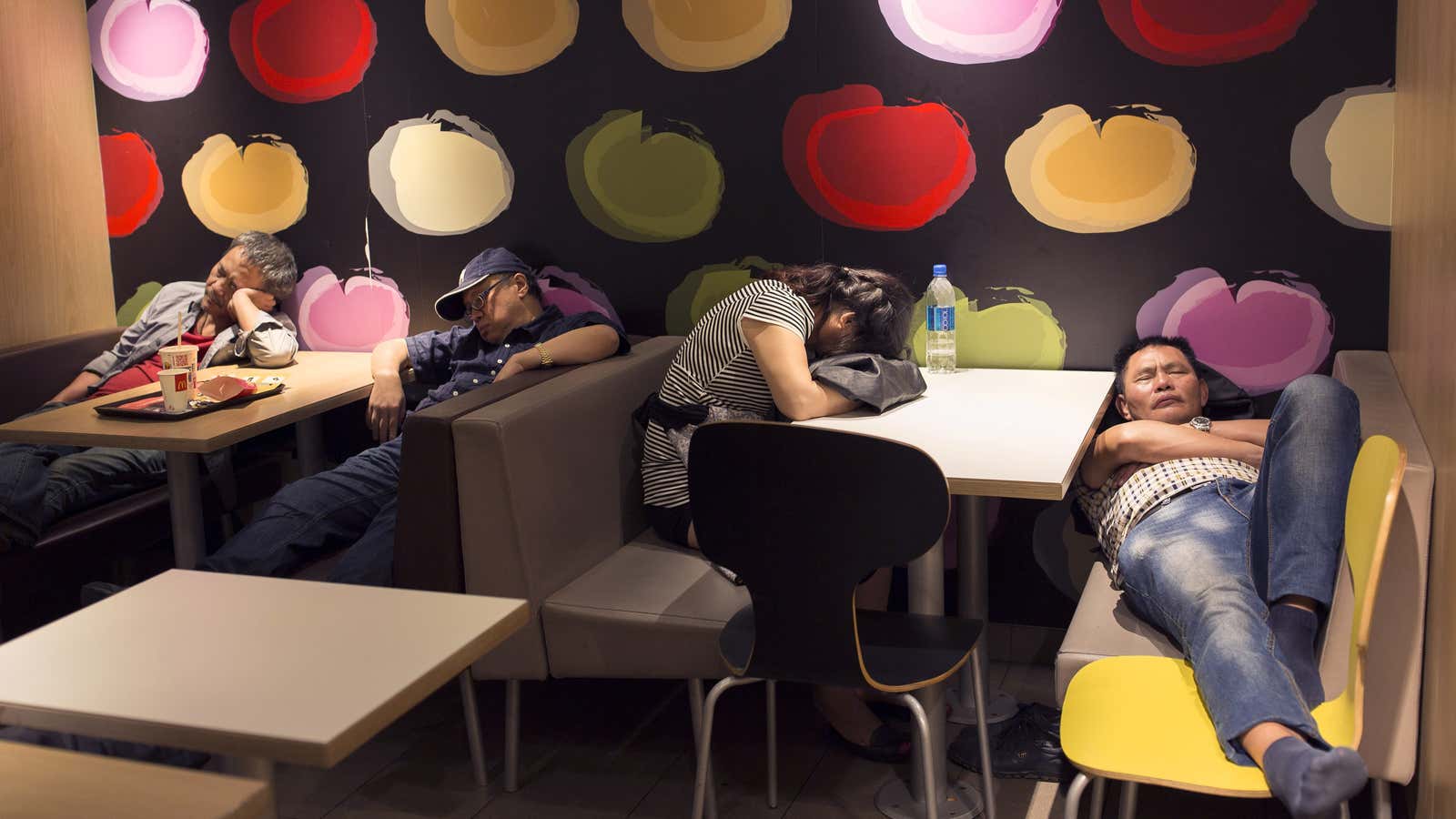If you’re feeing drowsy at work today, you’re not alone.
Millions of US workers are dragging on “Sleepy Monday,” the first work day after setting clocks ahead an hour yesterday morning (March 12) for daylight savings time. According to Christopher Barnes, a University of Washington business professor who coined the term, we’re less productive and more irritable and sluggish on Sleepy Mondays.
While the long-term consequences of not getting enough sleep are well known to researchers, Barnes has tried to find out what happens when we don’t get enough sleep on any particular night. While he didn’t set out to study the effects of daylight savings, he found the Monday after we set our clocks forward is the one time of the year when most Americans consistently don’t get enough sleep. Here’s what he found:
- Accidents climb. By examining two decades worth of mine safety data, Barnes found that accidents climbed 5.7% on Sleepy Monday.
- Cyber loafing rises. To see if people were goofing off while online at work, Barnes and his colleagues looked at internet search habits on six Sleepy Mondays, and compared them to the Mondays immediately before and after, in 203 US cities. Searches for terms like “ESPN,” “videos,” and “YouTube,” were 3.1% higher than on the previous Monday, and 6.4% than on the following Monday.
- Judgment is impaired. To see how lost sleep affects decision making, Barnes and a colleague looked at a decades worth of sentencing data by US judges and found that convicts received sentences 5% longer on Sleepy Mondays than on the Mondays immediately before and after.
- Car accidents increase. Another study, from economist Austin Smith, argues that fatal car crashes rose as much as 6.5%, for additional 30 fatalities between 2002 and 2011.
There’s little evidence that daylight savings serves any practical purpose. It has no economic benefit, it doesn’t benefit farmers—one of its original justifications—and it means children have to trudge to school in the dark. It’s increasingly clear that it’s bad for our health and productivity as well.
